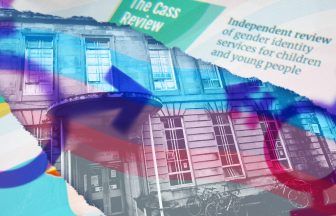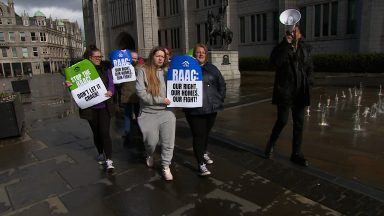Millions of people are worried about their jobs due to the coronavirus pandemic’s potentially crippling impact on the economy.
Employees are working from home where they can, while school closures cause additional pressures.
We asked Laura Macdonald from legal firm Jackson Boyd to answer some of your questions about employment law during the crisis.
When is Statutory Sick Pay (SSP) payable?
Usually, an employee must be absent from work due to incapacity to qualify for SSP. However, an amendment to the rules on SSP took effect from March 13, providing that SSP will be provided to those in self-isolation as a way to prevent infection or contamination with coronavirus and are unable to carry out their role from home during the isolation period.
In addition to this, employees who are self-isolating because a member of their household has symptoms, or those falling within vulnerable categories of individuals who are strongly advised to work from home, will also be entitled to SSP.
This position is different to those employees with an entitlement to contractual sick pay, as the contract will likely not extend to employees in self-isolation, and only to employees who are unwell.
When is SSP payable?
The government has promised emergency legislation temporarily making SSP payable from the first day of sickness absence (removing the three-day waiting period), when this has been connected to the coronavirus outbreak.
Will there be any reimbursement of SSP to employers?
The government has also pledged to reimburse SSP paid to employees in respect of the first 14 days of sickness absence, to employers with less than 250 employees.
Can an employer send an employee home from work to self-isolate?
In light of an employer’s duty to protect the health and safety of other employees, an employer may wish to keep an employee away from the workplace until any risk of infection has passed. When the employee falls within a category of individuals who are being advised through public health guidance to self-isolate, or where the employee is exhibiting symptoms of coronavirus, then the employer would be entitled to treat that employee as on sick leave (and pay sick pay accordingly).
The schools are closing nationwide on Friday, what options are available to employees unable to work due to childcare?
While the government has extended entitlement to SSP to employees absent from work due to caring for an ill member of their household who has been advised to self-isolate, this does not extend to those requiring to take time off work for childcare reasons. The only options currently available are to propose a working from home arrangement where possible, use holiday entitlement or request unpaid leave.
Can an employer force employees to take holidays?
In short, the answer is yes. An employer can impose holidays on employees and confirm the dates when the employee is required to take their holiday entitlement. However, the employer must provide notice of at least twice the length of the holiday period being imposed on the employee.
What is the government and Advisory, Conciliation and Arbitration Service (ACAS) advice?
The Covid-19 pandemic is continually changing, therefore the available advice from the government and ACAS is being updated as the situation develops, and it is recommended that employers keep track of the following sources which issue guidance to be followed:
- ACAS: Coronavirus: Advice for Employers and Employees
- WHO Guidance: Getting your Workplace read for Covid-19
- Health Protection Scotland: Coronavirus and NHS Inform: Coronavirus
What about those on casual, zero-hours and agency worker contracts?
These individuals should be able to claim SSP in the event that they cannot work, on the same terms as set out above. However, entitlement to SSP is subject to a £118 per week minimum earning limit over the previous 13 week reference period, and there is currently no provision to provide relief to those who receive an average weekly pay below this limit.
Follow STV News on WhatsApp
Scan the QR code on your mobile device for all the latest news from around the country























